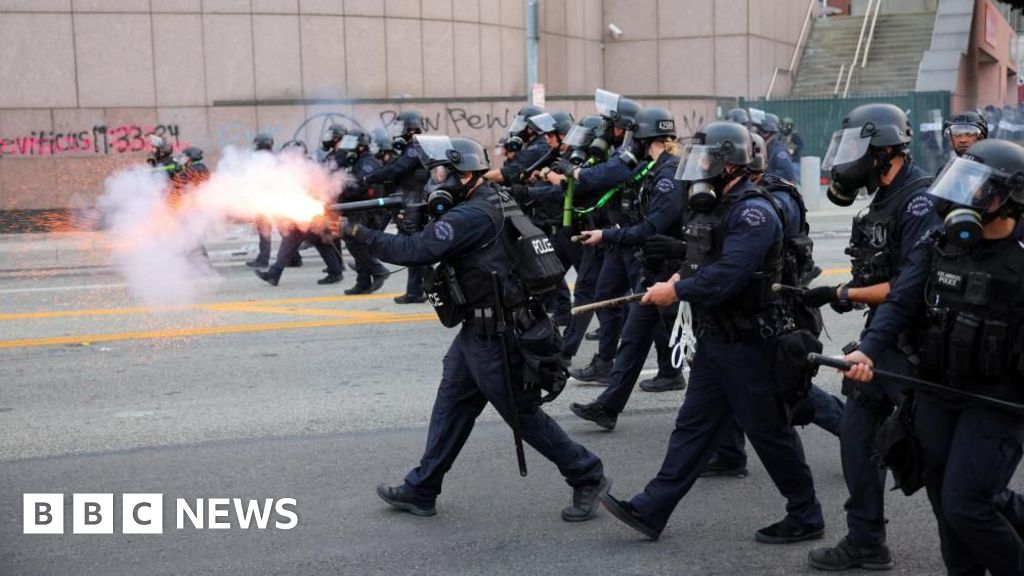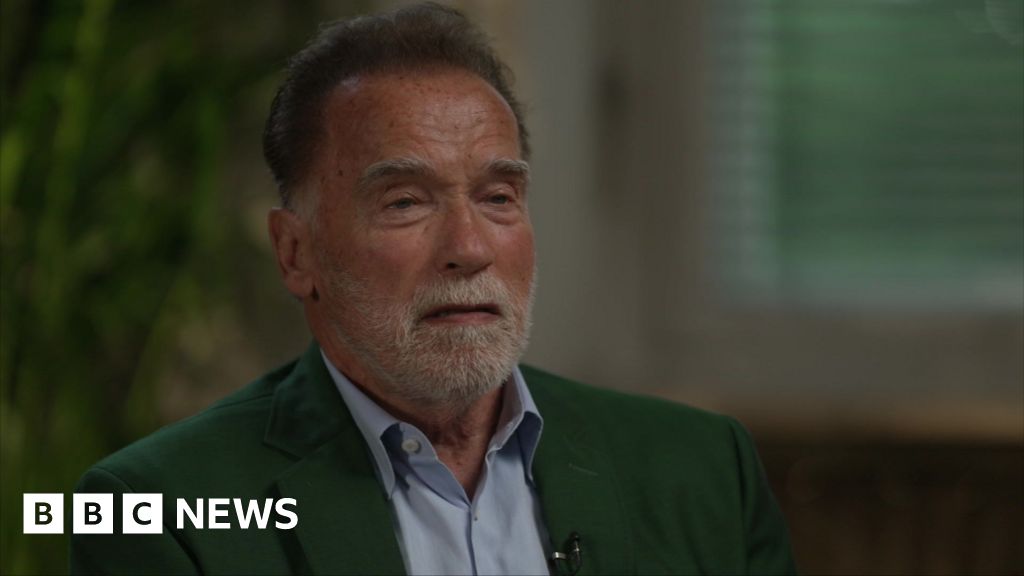ARTICLE AD BOX
By David Brown
BBC News
US president Joe Biden has said he would be willing to use force to defend Taiwan, but White House officials insist the US has not changed its position.
Washington has had a long-standing policy of "strategic ambiguity" on whether it would intervene militarily in the event of a Chinese attack on Taiwan.
China's President Xi Jinping has said "reunification" with Taiwan "must be fulfilled" - and has not ruled out the possible use of force to achieve this.
China sees self-ruled Taiwan as a breakaway province that will eventually be part of the country again.
However, Taiwan sees itself as an independent country, with its own constitution and democratically-elected leaders.
Where is Taiwan?
Taiwan is an island, roughly 100 miles from the coast of south east China.
It sits in the so-called "first island chain", which includes a list of US-friendly territories that are crucial to US foreign policy.
If China was to take over Taiwan, some western experts suggest it could be freer to project power in the western Pacific region and could possibly even threaten US military bases as far away as Guam and Hawaii.
But China insists that its intentions are purely peaceful.
Why is Taiwan separate from China?
The split between the two came about after World War Two, when there was fighting in mainland China between nationalist government forces and the Chinese Communist Party.
The communists won in 1949, and their leader, Mao Zedong, took control in Beijing.
Meanwhile, the nationalist party - known as the Kuomintang - fled to nearby Taiwan.
Image source, Getty Images
Image caption,Chiang Kai-shek led the Kuomintang after fleeing to Taiwan
The Kuomintang has been one of Taiwan's most prominent political parties ever since - ruling the island for a significant part of its history.
Currently, only 13 countries (plus the Vatican) recognise Taiwan as a sovereign country.
China exerts considerable diplomatic pressure on other countries not to recognise Taiwan, or to do anything which implies recognition.
Taiwan's defence minister has said relations with China are the worst they have been for 40 years.
Can Taiwan defend itself?
China could attempt to bring about reunification by non-military means such as strengthening economic ties.
But in any military confrontation, China's armed forces would dwarf those of Taiwan.
China spends more than any country except the US on defence and could draw on a huge range of capabilities, from naval power to missile technology, aircraft and cyber attacks.
Much of China's military power is focused elsewhere but, in overall terms of active duty personnel for example, there is a huge imbalance between the two sides.
In an open conflict, some western experts predict that Taiwan could at best aim to slow a Chinese attack, try to prevent a shore landing by Chinese amphibious forces, and mount guerrilla strikes whilst waiting for outside help.
That help could come from the US which sells arms to Taiwan.
Until now, Washington's policy of "strategic ambiguity" has meant the US has been deliberately unclear about whether or how it would defend Taiwan in the event of an attack.
Diplomatically, the US currently sticks to the "One-China" policy, which recognises only one Chinese government - in Beijing - and has formal ties with China rather than Taiwan.
But on Monday, US president Joe Biden appeared to harden Washington's position.
Asked whether the US would defend Taiwan militarily, Mr Biden replied: "Yes."
He also drew a parallel between the possibility of a Chinese attack on Taiwan and Russia's invasion of Ukraine: "The idea that, that it [Taiwan] can be taken by force, just taken by force, is just not, is just not appropriate. It will dislocate the entire region and be another action similar to what happened in Ukraine."
Is the situation getting worse?
In 2021, China appeared to ramp up pressure by sending military aircraft into Taiwan's Air Defence Zone, a self-declared area where foreign aircraft are identified, monitored, and controlled in the interests of national security.
Taiwan made data on plane incursions public in 2020.
The numbers of aircraft reported peaked in October 2021, with 56 incursions in a single day.
Why is Taiwan important for the rest of the world?
Taiwan's economy is hugely important.
Much of the world's everyday electronic equipment - from phones to laptops, watches and games consoles - is powered by computer chips made in Taiwan.
By one measure, a single Taiwanese company - the Taiwan Semiconductor Manufacturing Company or TSMC - has over half of the world's market.
TSMC is a so-called "foundry" - a company which makes chips designed by consumer and military customers. It is a vast industry, worth almost $100bn (£730bn) in 2021.
A Chinese takeover in Taiwan could give Beijing some control over one of the world's most important industries.
Are the Taiwanese people worried?
Despite the recent tensions between China and Taiwan, research suggests that many Taiwanese people are relatively untroubled.
In October the Taiwan Public Opinion Foundation asked people whether they thought that there would, eventually, be war with China.
Almost two thirds (64.3%) replied that they did not.
Separate research indicates that most people in Taiwan identify as Taiwanese - embracing a distinctly different identity.
Surveys conducted by the National Chengchi University since the early 1990s indicate that the proportion of people who identify as Chinese, or both Chinese and Taiwanese, has fallen and that most people consider themselves as Taiwanese.

 3 years ago
46
3 years ago
46








 English (US) ·
English (US) ·